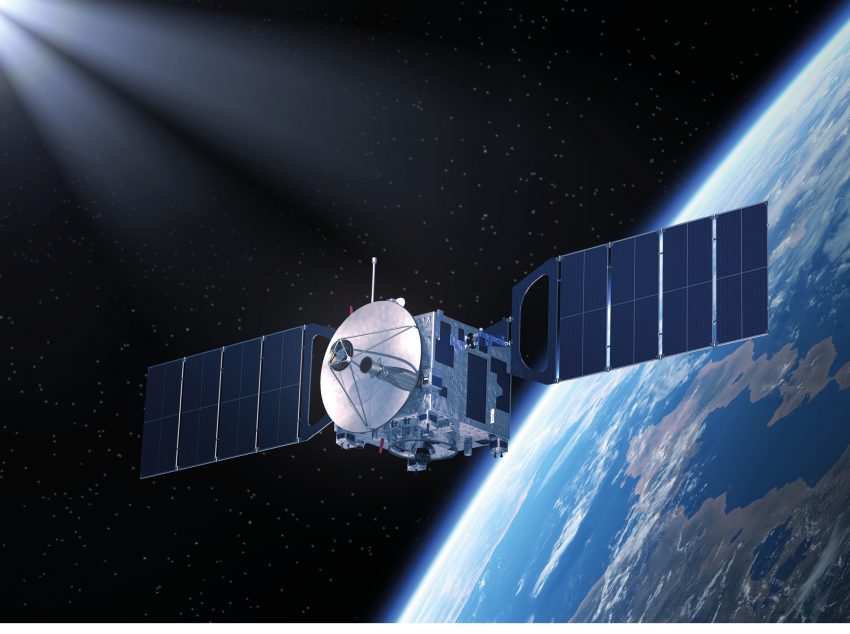The ‘second golden age’ of space travel is under way with the launch of commercial flights by Amazon founder Jeff Bezos and Virgin group chairman Richard Branson and a boom in development of new satellites and their applications.
In the next few years, an estimated 50,000 satellites will be orbiting the Earth. Add this to the already large amount of existing satellites and space is set to become crowded.
Now a company based in Northampton is aiming to explore the application of autonomous vehicle technologies to the space sector. Elestial’s vision is to develop robotic units to perform in-orbit maintenance and removal of space hardware. The company’s pioneering vision has earned it a place among the early-stage tech companies in the Midlands with the highest potential for growth, according to tech sector growth platform Tech Nation.
Elestial is among the five Midlands regional winners in Tech Nation’s annual Rising Starts list.
It says that the increase in the number of satellites launched by telecommunications and geospatial companies will inevitably create challenges and failures that will need to be managed to avoid economic, environmental, and geopolitical catastrophe. Its solution: robots that clean up and maintain commercial orbital highways in the short term while supporting large-scale infrastructure development in space long term.
Elestial’s development manager Harry Pegg said: “Elestial’s mission is to democratise space for the masses. Rising Stars 4.0 is an awesome platform to share our message and realise our ambitions.”
Public and private sector organisations worldwide are developing solutions to the problem but none seem scalable or reusable. Within the environmental agenda a non-reusable solution is not good enough, Elestial says. The solution must be reusable, adaptable, sustainable and endlessly scalable.
Mr Pegg said: “As the second golden age of space travel begins, we need to ensure that space is a sustainable and equal expanse for all and our in-orbit maintenance and inspection services can deliver this vision.”
The company is already working with the University of Surrey on a new project focused on orbital debris removal. Funded by the £5 million Space Research and Innovation Network for Technology programme, Elestial is to conduct a new feasibility study with Surrey Space Centre’s STAR LAB to evaluate its orbital platform concept and assess design requirements for suitable deployment in various orbital applications.
The SPRINT project aims to investigate the feasibility of putting a craft into orbit that would perform tasks such as satellite inspection, maintenance and debris removal. The study will support the development of a planned alpha prototype in-orbit demonstration by Elestial to be launched by June 2024, with a second upgraded alpha unit to join the initial alpha 12 months later for extended in-service evaluations.
“Elestial is interested in bringing innovations to space AI robotics, based on our expertise developed from the automotive sector,” said chief operating officer Steve Pegg. “This project is a feasibility study to help us to evaluate the existing robotic ‘orbital platform’ concept and assess its design requirements for suitable deployment for various orbital applications such as active debris removal.”
Elestial will focus on the commercial aspects, sharing its expertise and experience in automotive design and technologies and assessing the market opportunities for an in-orbit service platform. Researchers at the University of Surrey, experts in space-related robotics and artificial intelligence, will work with Elestial to progress its development plans towards an alpha prototype.
Colin Baldwin, head of local growth strategy at the UK Space Agency, said: “One of the biggest challenges facing the space sector is orbital congestion and space debris. The UK is committed to ensuring the long-term sustainability of space and we are working with innovative companies across the country backing projects such as this to ensure we all continue to benefit from the space-enabled services we rely on every day.”
Elestial aims to become a flagbearer of the industry and to demonstrate the UK’s potential in the development and manufacture of aerospace advancements. Its long-term plan is to develop an in-orbit services portfolio of products, technologies and on-demand services to support the growth in orbital volumes and increased demand in both commercial and consumer space operations.
This will include capturing and storing debris to prevent damage to operational satellites as well as performing maintenance and repairs on satellites affected by debris.
“Major academic institutions and organisations in this region are at the forefront of satellite application research and development, making it the perfect place for Elestial to grow and develop,” said Mr Pegg.


